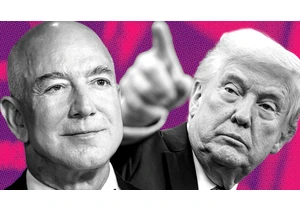At the Google IO keynote on Wednesday, the tech giant announced two payment initiatives—a digital wallet and a virtual card—which are designed to both improve security and convenience for consumers. Google Wallet is a new service that will allow Android users to store everything from payment services to tickets to vaccine records. Google is a latecomer to the digital wallet space. Apple first introduced the concept with the release of iOS 6 in 2012 (though it wasn’t formally named Apple Wallet until 2015). While Google Pay has long allowed people to store digital payment methods, it has not allowed storage of other items for users in the U.S. or Singapore. (It does, however, in 39 other markets.) Like Apple Wallet, Google Wallet will let users store credentials (like boarding passes, concert tickets, student IDs and loyalty cards), payment methods, and access tokens (such as digital car keys). It will also let them store vaccine records, assisting with access to facilities that insist upon proof of vaccination. Future iterations, the company says, will support mobile driver’s licenses, hotel keys and office badges. “[Google} Pay will remain, but it will remain as a payment and financial services app,” Bill Ready, president of commerce and payments at Google, tells Fast Company. “Effectively, Google Wallet gives you a file system or a place to store all your digital credentials, that other applications can act upon. G-Pay for payments is one of them. But since there are many other use cases, that’s why we felt like we needed to really have a single home for all those digital credentials.” Ready acknowledged to Fast Company it wasn’t the first to explore this space, but pointed out that Google Wallet differentiates itself by being an open ecosystem that doesn’t take a cut of credit card transactions. [Screenshot: Google]The wallet won’t directly allow cryptocurrency payments, but will store cards issued by crypto companies. In introducing the new service, Google highlighted the security improvements. For example, whereas someone who steals a physical wallet can use the credit cards or scalp any concert tickets it holds, that’s more challenging with a digital wallet, as screen lock settings on the phone can slow or prevent access. And if a phone is stolen, its user can remotely locate, lock or wipe all data from it. Virtual cards Security’s also the driving force behind the virtual card announcement, though convenience is certainly a factor as well. After the surge in online shopping over the past two years, Google will launch virtual cards on both Chrome and Android devices. The technology replaces your credit card number with a distinct, virtual number when you make purchases online. That’s meant to both secure transactions and better enable users to make quick purchases. Users of the service will no longer have to dig the physical card out of their wallet to look up and manually enter the CVV number. That will be included in the virtual card number Google supplies to the retailer. [Screenshot: Google]“The user can shop with confidence, knowing that they’re going to have a seamless transaction, and a safe transaction,” says Ready. “If a fraudster were to get access to that virtual card, it’s not useful, outside of that one merchant and that one transaction.” Virtual cards will be rolling out this summer in the U.S. Google said it will support Visa, American Express, and all Capital One cards initially, with MasterCard coming later this year. Chrome browser users won’t need to install any extensions or supplementary software. “This is a landmark step in bringing the security of virtual cards to as many consumers as possible,” said Arnold Goldberg, vice president and general manager of payments at Google, in a statement. “Shoppers using Chrome on desktop and Android can enjoy a fast checkout experience when shopping online while having the peace of mind knowing that their payment information is protected.” Google did not announce precise launch dates for Google Wallet or virtual cards.
Login to add comment
Other posts in this group

Consumers are only just starting to feel pain from Trump’s Liberation Day tariff spree. Amazon

When Donald Trump returned to the White House in 2025, many in the tech world hoped his promises to champion artificial intelligence and cut regulation would outweigh the risks of his famously vol

The first 27 satellites for Amazon’s Kuiper broadband internet constellation were launched into space from Florid

There are so many ways to die. You could fall off a cliff. A monk could light you on fire. A bat the size of a yacht could kick your head in. You’ve only just begun the game, and yet here you are,

Former Tinder CEO Renate Nyborg launched Meeno less than two years ago with the intention of it being an AI chatbot that help

The most indelible image from Donald Trump’s inauguration in January is not the image of the president taking the oath of office without his hand on the Bible. It is not the image of the First Lad

Ernest Hemingway had an influential theory about fiction that might explain a lot about a p
